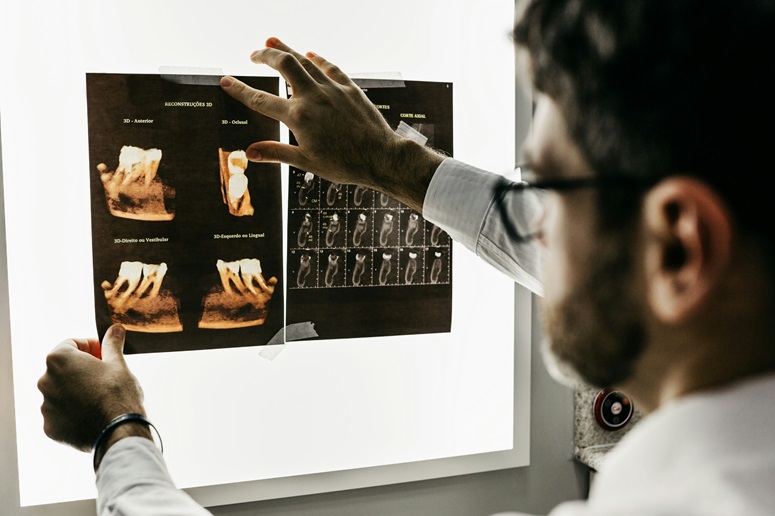What Do Bleeding Gums Mean?

While brushing and flossing at home or at your dentist appointment, you may notice that your gums are bleeding. Bleeding gums are a common issue, but that does not mean that you should ignore it when it happens.
Bleeding gums can have many causes. In some cases, it is a one-off event, such as biting into hard food. This is nothing to be concerned about. However, you need to worry if your gums bleed suddenly for no reason.
Sometimes, bleeding can occur if you are flossing too hard. Bleeding can be caused by an oral health issue, such as plaque buildup, gum disease, or smoking. It can also be caused by a medical issue, such as diabetes, hormonal changes, anemia, HIV/AIDS, vitamin deficiency, and the use of certain medications.
Bleeding gums can get worse over time if you ignore them. This is especially true if your bleeding is caused by gum disease. Gum disease can erode the tissue, ligaments, and bone that support your teeth. This can lead to an infection and even tooth loss.
If another health issue is causing you to suffer from bleeding gums, your symptoms may worsen. Because of this, you should see a healthcare provider so you can receive a proper diagnosis and treatment.
How to Stop Bleeding Gums
There are some things you can do at home to see if your gums will stop bleeding.
- Brush your teeth gently with a soft-bristle toothbrush twice a day.
- Flossing teeth twice a day can prevent plaque from building up.
- Rinse with salt water or hydrogen peroxide and water.
- Use an antibacterial mouthwash.
- Take vitamin supplements.
- If you smoke, quit.
What Your Dentist Can Do
If you cannot get your bleeding gums to subside at home, there are some things your dentist can do to help:
- Offer a specialized mouth rinse designed to treat gum inflammation.
- Prescribe antibiotics if an infection is present.
- Perform a deep dental cleaning called tooth scaling and root planning.
- Recommend osseous surgery to reduce the size of the pockets around your teeth.
- Perform laser periodontal surgery if you have gum disease.
If your dentist has been treating your bleeding gums aggressively and your gums are still bleeding often, you may need to seek medical treatment for an underlying health condition. See your doctor if the bleeding is severe or chronic or if you have other unexplained symptoms along with the bleeding.
Contact Comprehensive Dentistry Today
Bleeding gums are not a good sign. If you experience bleeding gums, you likely have a dental issue or health issue or are not brushing or flossing properly.
The team at Comprehensive Dentistry can assess your mouth and assess your oral health habits. We offer oral health care services for the entire family and make it our mission to take care of your dental needs, including treatment for gum disease and other concerns. To schedule an appointment, fill out the online form or call (734) 390-4337.
Categories
Archive